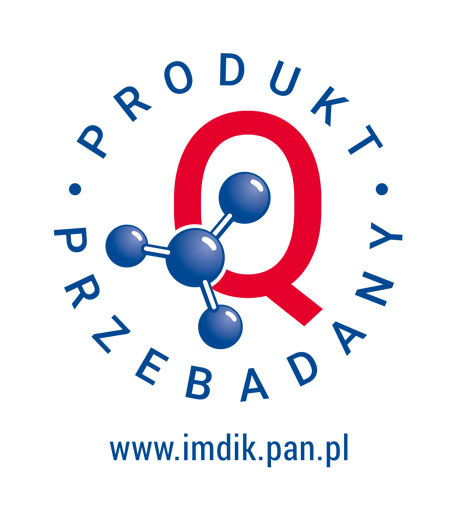Laboratories B517-B520
Head
Dawid Walerych PhD Hab., phone: +48 22 60 86 641, This email address is being protected from spambots. You need JavaScript enabled to view it.
Research staff
Maria Grześ PhD, phone: +48 22 60 86 641, This email address is being protected from spambots. You need JavaScript enabled to view it.
Magdalena Oroń PhD, phone: +48 22 60 86 641, This email address is being protected from spambots. You need JavaScript enabled to view it.
Qais Ahmad Naseer, PhD, phone: +48 22 60 86 641, This email address is being protected from spambots. You need JavaScript enabled to view it.
PhD students
Akanksha Jaiswar MSc Eng. (bioinformatics), phone: +48 22 60 86 641, This email address is being protected from spambots. You need JavaScript enabled to view it.
Luca Gazzola MSc, phone: +48 22 60 86 641, This email address is being protected from spambots. You need JavaScript enabled to view it.
Marcin Grochowski MSc, phone: +48 22 60 86 641, This email address is being protected from spambots. You need JavaScript enabled to view it.
Weronika Wojtyś MSc, phone: +48 22 60 86 641, This email address is being protected from spambots. You need JavaScript enabled to view it.
Undergraduate students
Justyna Legierska, phone: +48 22 60 86 641
Research profile
• Understanding molecular processes leading to human diseases, by using molecular large-scale analyses.
• Molecular programs of driver oncogenes in human neoplasias (mutant TP53, K/H/N-RAS, EGFR, PI3KCA, hyperactive C/N-MYC, CTNNB1, HSP90/HSP70/HSP4, the cellular proteasome machinery).
• Using a variety of large-scale omics methods (e.g. transcriptomics and proteomics) in conjunction with low-scale validation methods – leading to uncovering functional mechanisms of molecular pathways driven by the oncogenes and possibilities of exploiting them therapeutically in pre-clinical drug tests in human cancer models.
Grants
• „Influence of oligmierization ononcogenic activity of p53 mutant variants”, Miniatura NCN 2017/01/X/NZ3/01772, manager Dawid Walerych, 01-12.2018
• „Identification of the proteasome machinery targets in human cancer”, Marie-Curie Individual Fellowship Komisji Europejskiej H2020/795441, manager Dawid Walerych, 2018-2020
• „Proteomic identification and therapeutic use of the proteasome machinery targets in human cancer”, Opus NCN 2017/25/B/NZ5/01343, manager Dawid Walerych, 2018-2021
• „Multi-onco-map: a multi-omic map of major oncogene function in cancer”, Sonata Bis NCN 2017/26/E/NZ5/00663, manager Dawid Walerych, 2018-2022
Collaboration
domestic
• Central Clinical Hospital of Ministry of Interior and Administration, Warsaw
• National Center of Oncology, Warsaw
• Warsaw Medical University, Warsaw
foreign
• Max Planck Institute of Biochemistry, Martinsired, Germany
• ICEGB institute and University of Trieste, Italy
Research equipment
• Diagenode Sonicator
• Lumistar Galaxy Luminometer
• Electronic cell router Countess II
Research methods
• Obtaining, analysis and overlap of multi-omics data (genomics, transcriptomics, proteomics and metabolomics)
• Functional molecular in vitro research on oncogenes and molecular reprogramming of cancer cells – using genetics (e.g. CRISPR-Cas9), biochemistry and cell biology
• Research on phenotypes of cells undergoing genetic manipulation or drug treatment in vitro – viability, migration, invasion, 2D/3D colony formation, 3D growth, organotypic structure formation, angiogenesis
• Establishing and analysis of cancer patient material bio-bank (tumors, healthy tissue margins, blood samples) for use in validation and association studies
• Establishing and use tumor-derived organoid cultures
• Testing of anti-tumor therapeutic methods in vitro (cell lines, organoids) and in vivo (cell line- and organoid-derived xenografts).
Selected publications
- Grzes, M., Oron, M., Staszczak, Z., Jaiswar, A., Nowak-Niezgoda, M., and Walerych, D.* (2020). A Driver Never Works Alone-Interplay Networks of Mutant p53, MYC, RAS, and Other Universal Oncogenic Drivers in Human Cancer. Cancers 12, (2020).
- Walerych D*, Pruszko M, Zyla L, Wezyk M, Gaweda-Walerych K, Zylicz A. Wild-type p53 oligomerizes more efficiently than p53 hot-spot mutants and overcomes mutant p53 gain-of-function via a “dominant-positive” mechanism. Oncotarget. 9: 32063-80, (2018).
- Lisek, K., Campaner, E., Ciani, Y., Walerych, D.* & Del Sal, G.* Mutant p53 tunes the Nrf2-dependent antioxidant response to support survival of cancer cells. Oncotarget 9, 20508-20523, (2018).
Selected earlier publications of laboratory employees, since 2016: - Visone, R., Bacalini, M. G., Di Franco, S., Ferracin, M., Colorito, M. L., Pagotto, S., Laprovitera, N., Licastro, D., Di Marco, M., Scavo, E., Grzes M., et al. (2019). DNA methylation of shelf, shore and open sea CpG positions distinguish high microsatellite instability from low or stable microsatellite status colon cancer stem cells. Epigenomics 11, 587-604, (2019).
- Laprovitera N, Grzes M, Porcellini E, Ferracin M. Cancer Site-Specific Multiple microRNA Quantification by Droplet Digital PCR. Front Oncol. 15 (8):447, (2018)
- Donzelli S, Milano E, Puszko M, Sacconi A, Masciarelli S, Iosue I, Melucci E, Gallo E, Terrenato I, Mottolese M, Zylicz M, Zylicz A, Fazi F, Blandino G, Fontemaggi G. Expression of ID4 protein in breast cancer cells induces reprogramming of tumour-associated macrophages. Breast Cancer Res. 20(1):59, (2018).
- Pruszko, M., Milano, E., Zylicz, A., Zylicz, M., Blandino, G. & Fontemaggi, G. Zebrafish as experimental model to establish the contribution of mutant p53 and ID4 to breast cancer angiogenesis in vivo. J Thorac Dis 10, E231-E233, (2018).
- Mantovani, F., Walerych, D. & Sal, G. D. Targeting mutant p53 in cancer: a long road to precision therapy. FEBS J 284, 837-850, (2017).
- Tosi, A., Dalla Santa, S., Cappuzzello, E., Marotta, C., Walerych, D., Del Sal, G., Zanovello, P., Sommaggio, R. & Rosato, A. Identification of a HLA-A*0201-restricted immunogenic epitope from the universal tumor antigen DEPDC1. Oncoimmunology 6, e1313371, (2017).
- Pruszko, M., Milano, E., Forcato, M., Donzelli, S., Ganci, F., Di Agostino, S., De Panfilis, S., Fazi, F., Bates, D. O., Bicciato, S., Zylicz, M., Zylicz, A., Blandino, G. & Fontemaggi, G. The mutant p53-ID4 complex controls VEGFA isoforms by recruiting lncRNA MALAT1. EMBO Rep 18, 1331-1351, (2017).
- Garibaldi, F., Falcone, E., Trisciuoglio, D., Colombo, T., Lisek, K., Walerych, D., Del Sal, G., Paci, P., Bossi, G., Piaggio, G. & Gurtner, A. Mutant p53 inhibits miRNA biogenesis by interfering with the microprocessor complex. Oncogene 35, 3760-3770, (2016).
- Walerych, D., Lisek, K., Sommaggio, R., Piazza, S., Ciani, Y., Dalla, E., Rajkowska, K., Gaweda-Walerych, K., Ingallina, E., Tonelli, C., Morelli, M. J., Amato, A., Eterno, V., Zambelli, A., Rosato, A., Amati, B., Wisniewski, J. R. & Del Sal, G. Proteasome machinery is instrumental in a common gain-of-function program of the p53 missense mutants in cancer. Nat Cell Biol 18, 897-909, (2016).






